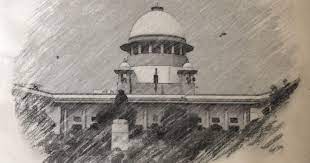COLLEGIUM SYSTEM FOR JUDICIAL APPOINTMENT IN HIGH COURT AND SUPREME COURT – THE INTERFERENCE OF EXECUTIVE AND LEGISLATURE
AUTHOR – MRS. VIKSHITA M.H, ASSISTANT PROFESSOR AT SOUNDARYA COLLEGE OF LAW, BANGALORE
Best Citation – MRS. VIKSHITA M.H, COLLEGIUM SYSTEM FOR JUDICIAL APPOINTMENT IN HIGH COURT AND SUPREME COURT – THE INTERFERENCE OF EXECUTIVE AND LEGISLATURE, ILE CONSTITUTIONAL REVIEW, 2 (3) of 2023, Pg. 22-25, APIS – 3920 – 0006 | ISSN – 2583-7168.
Abstract
There has been a nationwide debate going on in India about the system of appointment of Judges for High Courts and Supreme Courts. The exclusive power vested in the executive to appoint the judges through the recommendations made by the Collegium. In 1993, the Supreme Court created a new system for appointment of judges is called as “Collegium System. Whereas the Chief Justice Of India and Senior Judges of the Supreme Court make new appointments to the Supreme Court as well as High Courts. In 2014, parliament amended the constitution and passed the bill to form a commission to appoint new judges, but the Indian Supreme Court declared the law unconstitutional. In this article, we ascertain whether the executive interference is necessary when the constitution given provision of independency of judiciary. In present scenario recommendations made by the judiciary amounts to refusal by the executive that amounts procedure impacts the biographical and other characteristics of the judges that eventually selected.
Even we compare the biographical characteristics of judges appointed by the executive –appointments system prior to the 1993 and on the other hand the judges appointed by the collegium on or after 1993 to the Supreme Court of India. Appointment of judges to the Supreme Court of India and High Courts is provided for in Article 124(2) and Article 217(1) of the Constitution, respectively. These articles provide that power of appointment for a Supreme Court judge vests with the President, in consultation with the Chief Justice of India. We also found that procedure functioning in appointing judges of Supreme Court and High Court judges that both pre-collegium and post- collegium system maintain the diversity in the gender that are appointed. But both have failed to focus and work on the object in appointing judges. By tracing the history of appointment procedure before independence, we can see that crown had the discretionary authority in appointing Judges under the government of India Act 1919 and Act 1935.
Still the collegium doesn’t have independency and discretionary in appointing judges for Higher Judiciary. In this article we will analyses the independency of judiciary and collegium system in appointing judges for higher judiciary. It is facing lot of difficulties in appointing, transfer. More of all the questions raised by the law ministry in many recommendations made by the collegium.
Keywords: Supreme Court, High Court, Independency of Judiciary, Executive, Appointment of judges, Constitution of India, Collegium System
